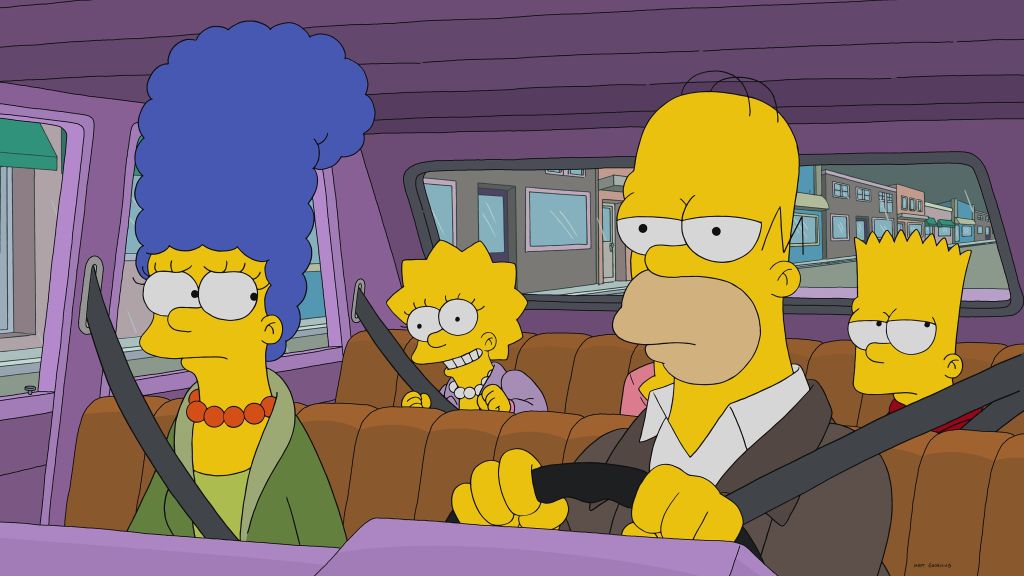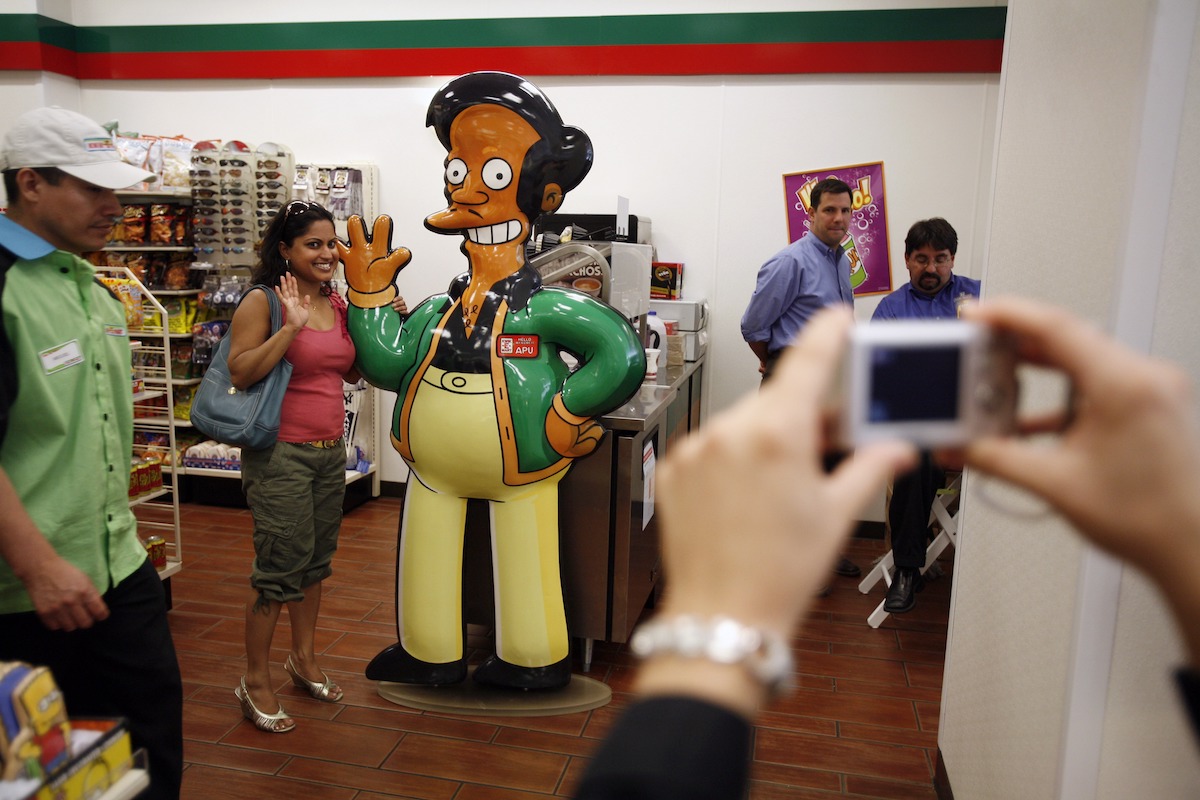‘The Simpsons’ Casting Mistake Has Tainted the Cartoon’s Legacy
There are only a few television series’ that are as influential and iconic as The Simpsons. The show has spawned a cult following and lots of spinoff materials, including books, a record-breaking movie, and a merchandising empire.
Fans still turn to the show for clever, insightful commentary. Still, The Simpsons has one serious mark on its record — and fans are speaking out about how the cult-classic show can do a course correction in the way that showrunners have handled the character of Apu.
When did ‘The Simpsons’ debut?

It might not seem like it, but The Simpsons first debuted on television way back in 1989. The show was created as a satirical depiction of life in middle-class America and featured characters like Bart Simpson, Homer Simpson, Marge Simpson, and Lisa Simpson.
Over the years, the show has tackled many difficult subjects, welcomed countless celebrity guests, and inspired a massive fan following.
The Simpsons began earning accolades from critics very early on. A few of the awards that the show has won include more than thirty Primetime Emmy Awards and two Peabody Awards.
Catchphrases from the show, including Homer Simpson’s iconic “D’oh!” have entered the popular lexicon, and the show is widely considered to have influenced almost every adult-themed cartoon that has premiered in the last two decades.
In 2007, The Simpsons was released as a feature-length film, proving that even after 20 years, the show and the characters, still had remarkable staying power.
The character of Apu has been problematic for years
While The Simpsons focuses primarily on Homer Simpson and his family, the show has also introduced a wide variety of supporting characters over the years.
One of these characters is Apu Nahasapeemapetilon, an Indian-American man who runs a local gas station in the Simpsons’ hometown of Springfield. Voiced by Hank Azaria, a white man, Apu was introduced in the first season of The Simpsons and for years, remained a regular character.
Many viewers found Abu to be problematic, to say the least. In 2017, after years of fan backlash, a documentary was released that slammed the character as being a stereotype, calling on showrunners to do better with representation.
Finally, Azaria, who has voiced Apu since the show’s beginning, spoke out, revealing that he would no longer be voicing the character and that he was working with the network in order to “transition” the character to a place that felt more appropriate.
Critics want the character of Apu to come back

For the past several years, the character of Apu has been absent from The Simpsons, following the release of the documentary and the subsequent backlash. Still, many television heavyweights and fans alike are speaking out, revealing that there is a place for Apu in the television landscape — providing that it is done respectfully.
TV producers like Adi Shankar have stated that removing Apu from the show entirely is a step “sideways” and that the show would do well to bring Apu back, albeit voiced by an Indian-American actor rather than a white one.
“Give Apu a spinoff. We’re arguing over racial constructs, this is a perfect opportunity to deconstruct it, to dissolve it and bring our species together,” Shankar stated in a recent article.
Others chimed in to agree with Shankar. It seems as though the ball is in the court of The Simpsons showrunners, and thus far, they haven’t made any real, definitive statement regarding Apu’s future on the show. If they do decide to bring Apu back in some form or fashion, it would be a step in the right direction, and would likely go a long way towards course-correcting the dark mark in The Simpsons‘ otherwise impressive history.


